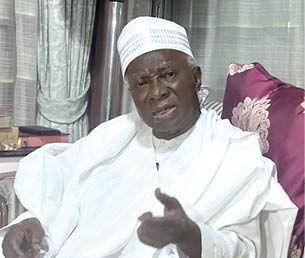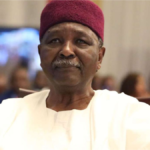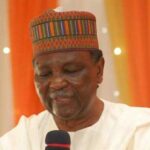Chief Philip Asiodu is one of Nigeria’s finest technocrats and public servants. In this interview, the former permanent secretary in the Ministry of Petroleum, bureaucrat and diplomat spoke on the days of General Yakubu Gowon (retd) as military head of state, describing him as a just and committed leader.
How did you meet General Gowon and how would you describe him?
I first met him when I was the deputy permanent secretary in the Ministry of Lagos Affairs in 1964. We were preparing for the independence anniversary of 1964, which was coordinated by the Ministry of Lagos Affairs. On our planning committee, there were representatives of various ministries, particularly the Ministry of Defence and he came with Brigadier Mai Malari as representatives of the army. He was a quintessential gentleman, an officer in the best tradition of the British Army. He went to Sandhurst.
I was surprised to hear them talk about the need for additional votes in their budget. This was going to be the fourth anniversary and I was surprised that having done it three times, it was not in their budget. But we proceeded and had a good anniversary.
Two years down the line, we had the first military coup in January 1966; the countercoup was July 1966. There was disquiet in the army that the people who attempted the coup had not been court-marshalled. There were also incidents.
When Gowon was presented as president, we briefed him and prepared a series of questions and possible answers. I am glad to say that no question was asked that he had not been briefed about. It was a successful press conference. That was my first close encounter with him.
Like Ironsi, he respected the civil service and kept them functioning. He also respected the police. In fact, at that time, the only signals around the country were from the police. We were meeting in what is now known as Kam Salem House, the police headquarters.
We had Gowon as the head of government and supreme commander of the armed forces, but there was tension. Easterners felt they were being killed in the North and they were beginning to run away. It was not a comfortable time, but he was committed to a united Nigeria, and somehow, some witty people turned his name to an acronym, GOWON (Go on with one Nigeria), which really suited him.
When Gowon came after the countercoup, he respected our constitution and civil service institutions that existed. We had an orderly government, but there was still this refusal of Odumegwu Ojukwu (former Biafran leader) to accept the new order. For instance, he felt he was senior to Gowon and so on. For the meeting we started in Nigeria, he felt he could not send his delegates anywhere in the country safely, especially with the programmes that had gone on. So they met at Aburi, near Accra.
If you look at Decree 8 of 1967 implementing Aburi, there was this provision for unanimity in sending ambassadors, in promotion to Group 7 and so on. If that constitution had been put in place, within three months there would have been no effective Nigeria. And God knows what would have happened if we disintegrated into three regions.
At that time, civil servants were accused of rejecting the constitution. We just analysed the consequences, but despite that, Decree 8 was issued. Gowon did his best, but the complaint under the regional system was that the Northern Region alone was more than two-thirds of Nigeria. In fact, the North-East was more than one-third. So, there was a demand led by J.S Tarka for a Middle Belt State; and the Calabar-Ogoja-Rivers had been on. In fact, Ibibio State Union was the first tribal union in Nigeria, and having consulted and persuaded that the North was ready to have a more balanced federation, he made a speech on May 5, 1967, dividing Nigeria into 12 states – six in the North and six in the South, and not one state could dictate to the rest of the country.
What would you say was his greatest legacy as head of state?
His greatest legacy was respecting the institutional memories of the civil service. People who could tell you what happened and the consequences. There was thought-out advice to inform government decisions. So, his greatest legacy was respect for the civil service and other institutions he met.
When the war broke out, there was a convention worked out and distributed to all the soldiers on how they should treat civilians as it was a war amongst brothers, not unknown enemies. In fact, one of my colleagues, the late Ahmed Joda, who was in the North at the beginning as the northern permanent secretary, said war among brothers was usually nasty, but they wanted assurance that at the end, they would be able to go back to their market in Enugu, Port Harcourt, Aba to sell their cattle.
The economic movement across Nigeria was already taken for granted; and it was a function of the leadership to serve the interest of the people. There was this convention on the treatment of civilians, that if you took over from the so-called secessionists, you must treat the civilians well.
His greatest legacy was trying to preserve a well ruled Nigeria, respecting the laws, listening to well-considered advice. And even during the civil war, we were consulting regularly, going to various universities and consulting economists. In 1969, we had an international conference, where Nigerian experts, ministries and states were involved. We drew up the basis for post-civil war rehabilitation, reconciliation and reconstruction.
The great thing is that in the post-war years, until Gowon was removed, from 1970 to 1975, the economy was growing at 11.75 per cent per annum, population 2.8 to 3 per cent and visible improvement was going on.
Are we fulfilling Gowon’s dream as a country?
We are not. We are not united as a country. In fact, we are not doing things based on well thought-out plans. One thing that happened when he was removed was the rejection of planning. When we were trying to do Vision 2010; and later, Vision 2020, we were trying to go back to planning.
When we were designing the first implementation of the 2010-2021 plan – we broke them into four years – we found that the Indians were completing their 10th five-year plan. And we had abandoned ours after 1974. With the coup of 1975, they forgot the 1975-1980 plan, which Gowon insisted implementation was more important than going back to civilian rule. That was his idea, but you have to persuade the people you are leading.
- Why we took initiative for Gowon’s 90th birthday –Jerry Gana
- Why were Gowon, Buhari left out of Minna meeting of OBJ, IBB & Abdusalami, former presidential aide queries
Would you say we have honoured and celebrated him enough, considering what he did, especially to keep Nigeria united?
We remember his achievements. He listened to people. As I told you, the economy was growing at 11.7 per cent; and you know that at 10 per cent compound interest, the principle doubles in seven years. By 1975, our gross domestic product already stood at $1,500, ahead of India, China, South Korea, Vietnam and the Asian Tiger.
As you know, it was from here that the British got Malaysia to come and learn about palm oil, but unfortunately, now we are importing palm oil. It is very bad. And we had reached a stage where we had converted palm oil to margarine. We were also doing Sunlight soap and all that.
Do you know that after Gowon was removed, there was a terrible massacre of the civil service etc. We have not recovered from that.
People remember Gowon with great respect for keeping Nigeria united. He is also remembered for his declaration of “No victor, no vanquished.” We thank him for his agreement and supervision of reconciliation, rehabilitation and reconstruction.
We agreed to have Peugeot; and by 1975, its local content like brake pad, battery and so on would have been more than 70 per cent before Gowon was removed. We remember him for all that. He would also be remembered for his leadership during the civil war. He was a quintessential gentleman, very courteous, polite and fair to people. He listened to all the sides of an argument. He was a great leader and is still a respected elder statesman. We hope Nigeria would return to discipline, justice and equity. We hope the country would return to a merit-driven system.

 Join Daily Trust WhatsApp Community For Quick Access To News and Happenings Around You.
Join Daily Trust WhatsApp Community For Quick Access To News and Happenings Around You.


